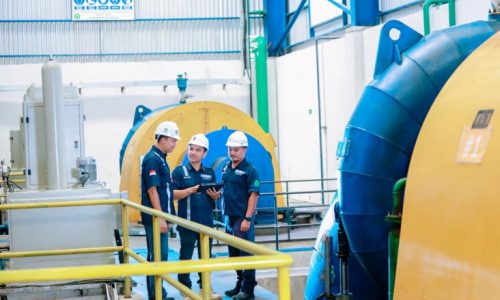Laode Masihu, a key member of the economic team for president-elect Prabowo Subianto and vice president-elect Gibran Rakabuming Raka, has highlighted data centers as a lucrative business model and a prime investment opportunity for the future.
Speaking at the Kompas CEO 100 event at the Garuda Palace in the Nusantara Capital City (IKN) on Friday, October 11, 2024, Laode emphasized the growing importance of real-time, interactive data in driving the global economy.
He pointed out that modern economic structures are increasingly reliant on complex and immediate data collection, with carbon trading as a prime example.
He compared carbon trading to weather forecasting, explaining the need for accurate and up-to-date data.
“Carbon trading is like predicting the weather. Today, at a specific hour, I can check carbon levels in IKN and make instant deals based on that. This is the new way of doing business,” he said.
Under the leadership of Prabowo and Gibran, Laode envisions an economic policy centered on real digital economies powered by big data platforms.
Big data, he explained, refers to the vast, complex, and fast-growing sets of information generated from various sources such as social media and business transactions.
To support this vision, the economic team plans to synchronize Indonesia’s data infrastructure while leveraging artificial intelligence (AI) to manage the country’s big data.
Laode also emphasized the crucial role of Generation Z in advancing a data-driven economy, noting the importance of enhancing IT literacy and digital competencies.
“Generation Z is our golden generation. What we need to focus on is improving their IT literacy through proper training and boosting digital literacy and competence,” he said.
He also identified two major areas that could transform Indonesia’s stagnant 5% economic growth rate: carbon economics and the reform of state-owned enterprises (SOEs).
Laode believes that both green and blue carbon sectors offer significant potential to boost the economy and create job opportunities.
Additionally, reforming BUMN will focus on enhancing professionalism and prioritizing economic outcomes.
The Prabowo-Gibran administration aims to integrate these strategies to propel Indonesia’s economy toward greater efficiency, sustainability, and technological advancement.









